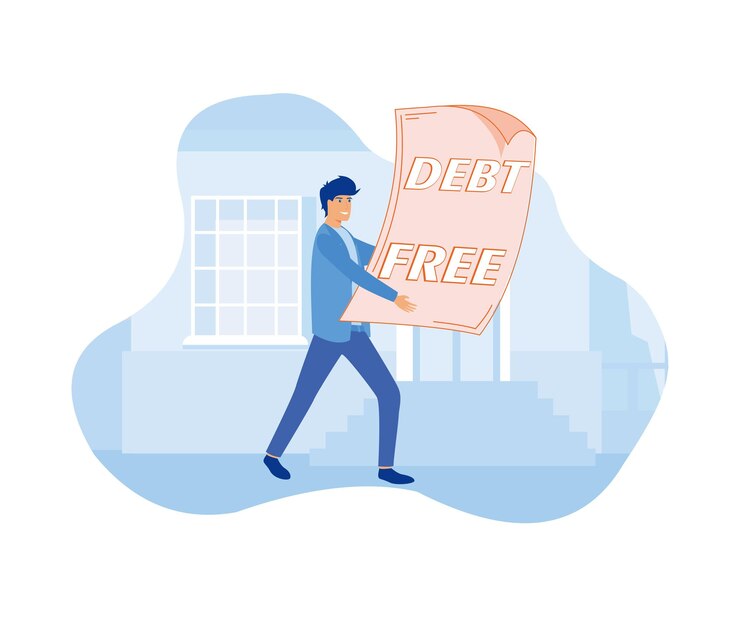Becoming debt-free is a powerful and liberating goal, and it usually involves a combination of strategies, discipline, and time. Here’s a general roadmap to help you get started:
- Assess Your Debt
- List out all your debts, including credit cards, student loans, car loans, personal loans, etc. Note down the amount owed, interest rates, and minimum monthly payments for each.
- This gives you a clear picture of where you stand and how much you need to pay off.
- Create a Budget
- Track your income and expenses so you can see where your money is going. This helps you cut unnecessary costs and free up more money to pay down your debts.
- Prioritize spending on essentials and try to trim discretionary expenses (like eating out or entertainment).
- Build an Emergency Fund
- Having a small emergency fund (around $500 to $1,000) will prevent you from accumulating more debt in case unexpected expenses arise. You want to avoid using credit cards or loans for emergencies.
- Choose a Debt Repayment Strategy
- Debt Snowball: Pay off the smallest debt first while making minimum payments on the others. Once the smallest debt is paid off, move to the next smallest. This creates momentum and motivation.
- Debt Avalanche: Pay off the highest-interest debt first while making minimum payments on the others. This method saves you money in interest over time.
- Choose the strategy that works best for you—some people prefer the motivation from the snowball, while others prefer the money-saving impact of the avalanche.
- Negotiate Lower Interest Rates
- Contact your creditors and try to negotiate lower interest rates, especially on high-interest credit cards. Some companies are willing to help if you’re proactive.
- Consider Consolidation or Refinancing
- If you have multiple high-interest debts, consolidating them into one lower-interest loan could save you money. Refinancing loans (like student loans or mortgages) is another option to lower interest rates and reduce monthly payments.
- Increase Your Income
- If possible, find ways to boost your income—through side gigs, freelancing, or selling items you no longer need. The extra money can help you pay down your debt faster.
- Avoid Taking on New Debt
- It’s crucial not to add more debt while trying to pay off existing balances. This means being cautious with credit card use and avoiding unnecessary purchases.
- Celebrate Small Wins
- As you pay off each debt or hit milestones (like paying off your first credit card), take a moment to celebrate. This keeps you motivated to continue your debt-free journey.
- Stay Committed
- Debt repayment can take time, and there might be setbacks. Stick with your plan, and remember that getting debt-free is a marathon, not a sprint.



